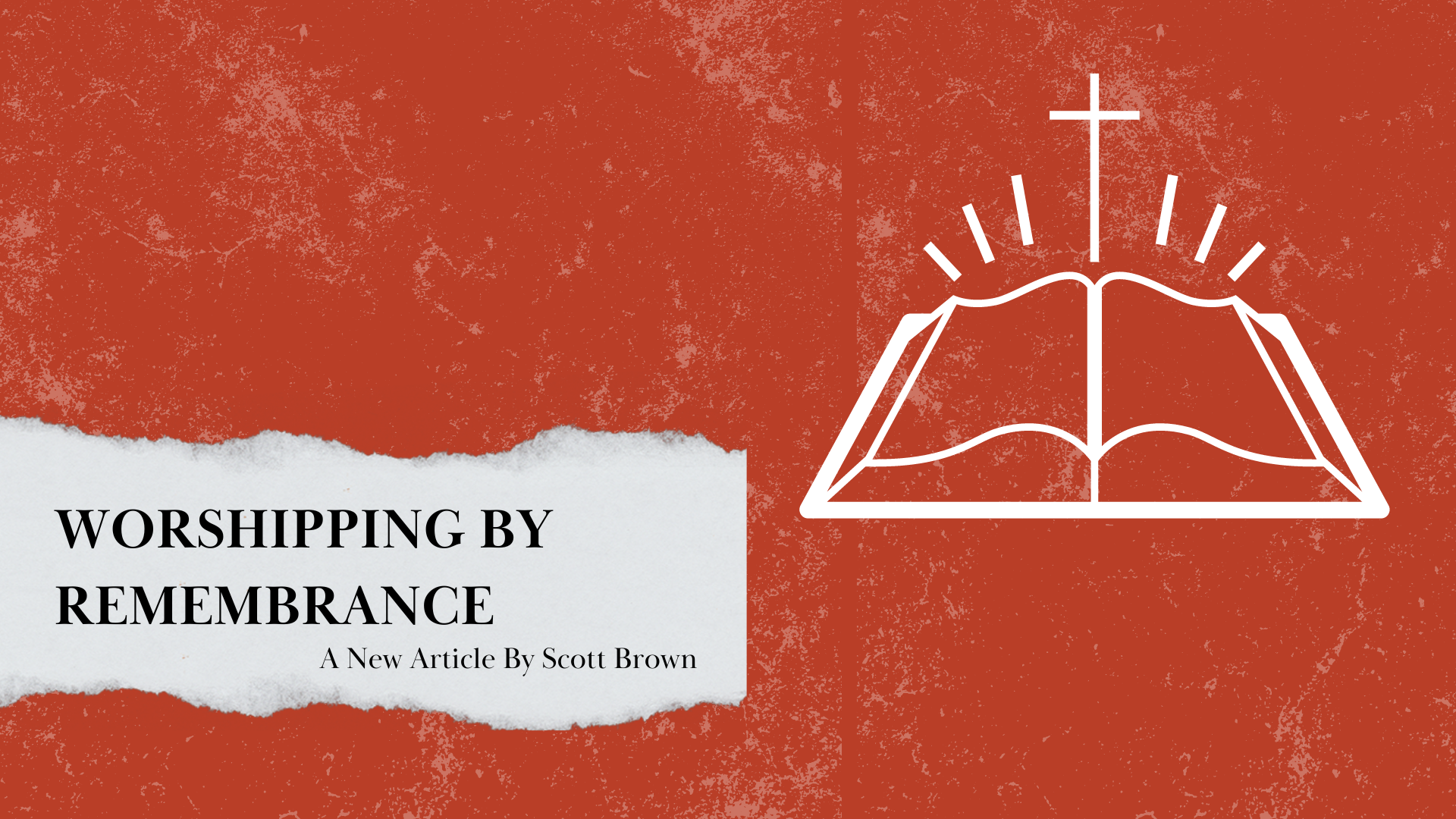Worshipping by Remembrance

Often times we forget who we really are. When we forget who we are, and who God has made us to be, we forget our purpose. Remembering our purpose of worshipping God is easily forgotten when we forget who we are because of Him. So, today, we will explore this concept of worshipping by remembrance.
Identity in the Old Testament
Throughout the Old Testament, identity for the Hebrew people was frequently rooted in their history. Their story of being God’s people, descended from Abraham and heirs of God’s promises through him, was what held them together and gave them their sense of value & purpose in life. Worshipping God was not only integral to their identity, it was their identity. It was Israel’s worship of Yahweh that set them apart from the other nations around them, giving them a unique identity and purpose in worshipping the God of Israel.
The lives of the Hebrew people were rooted in who they were as God’s chosen people, and it was this sense of identity that was to lead them into worshipping God, who had picked them out of all the peoples of the world to be His own, and to drive their purpose in the world. God had chosen Israel through Abraham and the line of David, covenanted Himself to them, and blessed them to prosper by following His commands. He did all of this from His own accord, not because of anything Israel did.
This gift of His presence, blessing, and favor was to direct Israel to worshipping the God of their fathers and to keep them rooted in their identity as His people. It was also meant to keep them on track with following His commands, demonstrating that worshipping God was not only done in obedience but throughout all facets of life. Obedience was key, but genuinely loving God was true worship, and worshipping God could be expressed through obedience, faithfulness, and commitment to His standards of life & behavior. Often God spoke through the prophets, reminding Israel of who they were, and as a result, who they were called to be. God’s covenant to Israel was not based on their worshipping Him but based on His word to them. He made a promise, and He would keep it regardless. However, Israel’s receiving of God’s blessings in the covenant was dependent on worshipping Him exclusively – through obedience, faithfulness, and trust.
As worshipping God became less important and less central to Israel in the Old Testament, they often forgot who they were – or the view became distorted. Often the Israelites would take advantage of their identity as God’s chosen people, abusing His grace and forsaking the core significance of worshipping Yahweh. For many Israelites, worshipping idols became a preference over worshipping Yahweh, as they could live whatever life they wanted, including being just like the nations around them. Worshipping God was exclusive and required certain lifestyle patterns, but worshipping idols allowed for endless sexual liberties and unrestrained desires. This, of course, came with severe consequences from Yahweh, which led the Israelites into plagues, famines, and even exile from their homeland. Yet, even as God had punished the Israelites for their failure to follow His commands, He always promised hope to them for the future because He was faithful to keep His covenant to them. The time would again come when Israel would be back in the promised land, worshipping Yahweh and keeping His covenant. This is where their identity was found, and in remembering this, it would keep them on target with their exclusive worship of Yahweh.
Ultimately, Israel failed to stay faithful in worshipping Yahweh exclusively, and God looked forward to a time when He would give them a new heart & a new spirit to cause them to obey His commands (Ezekiel 36:26-27). It is here we look to the New Testament.
Identity in the New Testament
Following a long period of silence between the Old & New Testament time periods, Jesus of Nazareth rose as God’s anointed messiah, the one who would save Israel and make a way for Yahweh worshipers to access the Father intimately. Jesus taught that worshipping God was not exclusive to a temple or location or a cultural history, but rather it would be done “in spirit and truth”, anywhere, by anyone who would accept His grace & follow Him. He said this because the Father was seeking these “true worshipers” to be worshipping Him (John 4:21-24). Through Jesus’ ministry, we learned that God was seeking true hearts to worship Him, and that worshipping God came with its own new set of identifying principles.
Following the life, death, resurrection, and ascension of the Christ, the Holy Spirit was sent to dwell within God’s people, anointing His worshipers with power and filling them with His presence. This indwelling of God’s Spirit marked His people as His own, giving them a new sense of identity in worshipping Him. As He promised long ago in Ezekiel 36, this was the time when God gave His people a new heart & a new spirit to obey His laws. This was a radical change in the life of the believer, who was now empowered to be worshipping God with their whole life and empowered to stay faithful to His commands. Israel’s failures would now be redeemed through the success (i.e., the faithfulness & dependence on the Father) of Jesus of Nazareth, and the fulfillment of God’s promised Spirit in & through His people. God wants people to be worshipping Him, and He made a way through Jesus for that worship to welcome people beyond His chosen people of the Old Testament.
Picking back up on identity, Paul wrote extensively on who we are now because of Jesus’ work on the cross. Paul wrote that we are now “holy and blameless” before God (Ephesians 1:4), we are His “glorious inheritance” (Ephesians 1:18), and we are reconciled to God and above reproach before Him (Colossians 1:21-22). Because of Christ’s atoning & propitiatory sacrifice, we are now different – and God sees us differently. We are now worshipping the God that made us pure, and made us right before Him! And remembering this ought to change how we are worshipping Him also! Paul further writes that God “cancelled the record of debt against us” and “set it aside”, “nailing it to the cross” (Colossians 2:14). This knowledge also ought to change us! This should be our new “why” for worshipping God. And remembering this truth can now root us in who we are before God, and before the accuser.
Conclusion
Because of Christ, we are made right before God and reconciled to Him. God has now come to dwell not only among His people, but within them, making Him even more intimate & known to us. Because God has done this, we are called to be worshipping Him with our whole lives, giving all that we are because He gave to us first. This kind of truth ought to lead us into worshipping God even more excitedly and cause us to lead lives that reflect His glory, giving thanks to Him always.
May we remember who we are today, and in so doing, may we remember that worshipping God is not just a Sunday morning experience… But worshipping God is a lifestyle.


